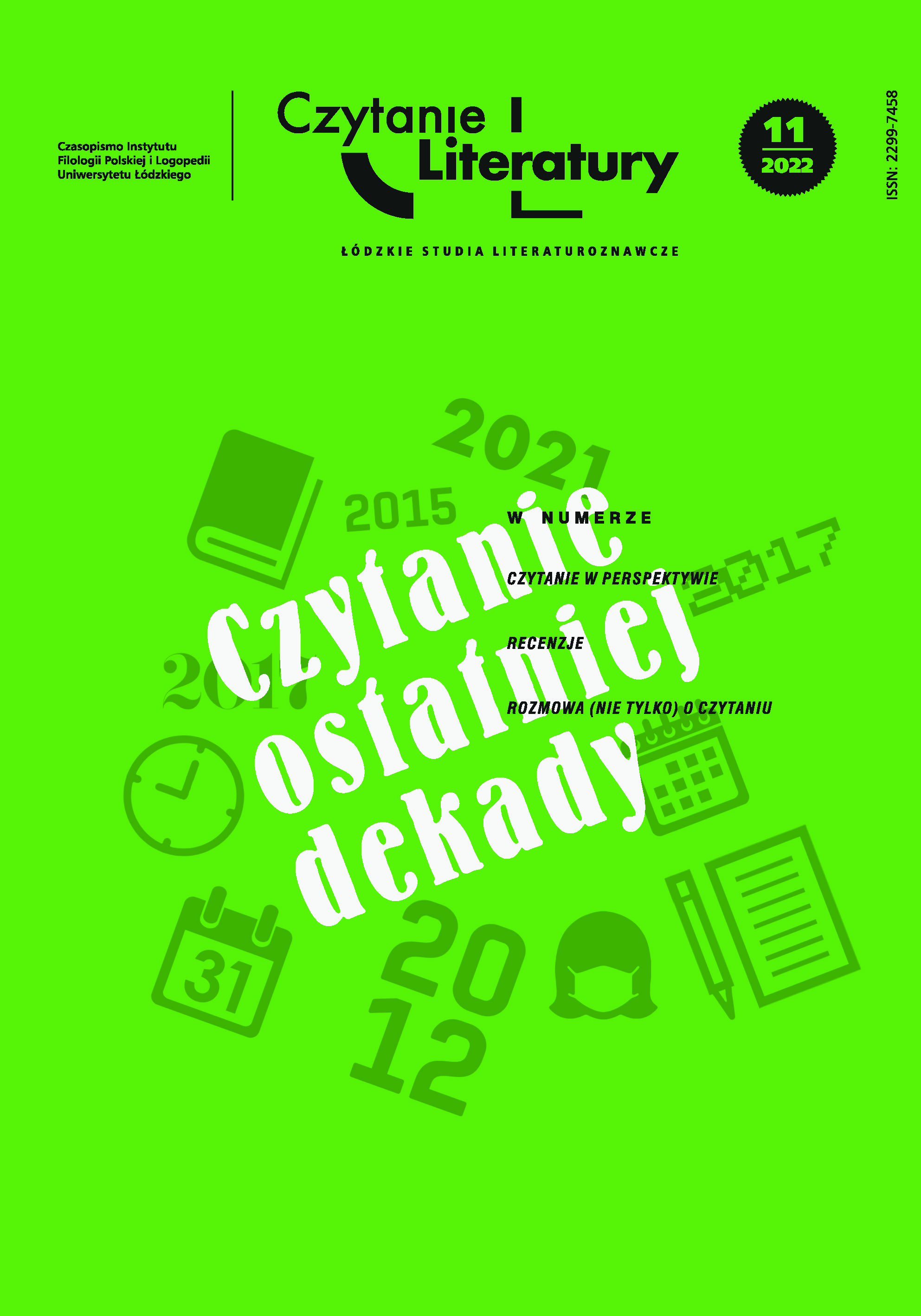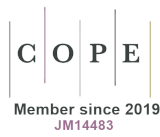Homo Academicus Polonicus. Autotheories as Both Creative and Critical Academic Writing
DOI:
https://doi.org/10.18778/2299-7458.11.04Keywords:
autotheory, subversion, emotions, memoir, academic writingAbstract
The author explains and defines autotheories by analyzing Polish-language texts: Znikanie (Disappearance) by Izabela Morska, Polska, rozkosz, uniwersytet (Poland, Pleasure, University) by Michał Paweł Markowski and Harcowanie na planie. Her-storia stawania się matką-akademiczką w polskim uniwersytecie (Enter Stage Left. Her-story of Becoming Mother-Academic at a Polish University) by Beata Karpińska-Musiał. Upon reading of these texts, it becomes evident that there is a critical potential in autotheories that link academic writing with memoir. Autotheories are also an example of creative, literary academic writing.
Downloads
References
Cvetkovich A., Depression: A Public Feeling, Durham–London 2012, https://doi.org/10.1215/9780822391852
Google Scholar
DOI: https://doi.org/10.2307/j.ctv11smrx4
Karpińska-Musiał B., Harcowanie na planie. Her-storia stawania się matką-akademiczką w polskim uniwersytecie, Lublin 2021.
Google Scholar
Markowski M.P., Polska, rozkosz, uniwersytet. Opowieść edukacyjna, Kraków 2021.
Google Scholar
Morska I., Szaleństwo Niny Malech, Muzeum Literatury im. A. Mickiewicza, akc. 2980/20, nr inwent. 6542.
Google Scholar
Morska I., Znikanie, Kraków 2019.
Google Scholar
Nelson M., Argonauci, przeł. K. Gucio, Wołowiec 2020.
Google Scholar
Preciado P.B., Testo ćpun. Seks, polityka i narkotyki w dobie farmakopornografii, przeł. S. Królak, Warszawa 2021.
Google Scholar
Boruszkowska I., Defekty. Literackie auto/pato/grafie. Szkice, Kraków 2016.
Google Scholar
Boruszkowska I., Projekt depatologizacji uczuć negatywnych. O książce Ann Cvetkovich „Depression: A Public Feeling”, „Wielogłos” 2017, nr 2, s. 115–125.
Google Scholar
Clare R., Becoming Autotheory, „Arizona Quarterly. A Journal of American Literature, Culture, and Theory” 2020, vol. 76, no. 1, s. 85–107. https://doi.org/10.1353/arq.2020.0003
Google Scholar
DOI: https://doi.org/10.1353/arq.2020.0003
Dolan J., Feeling Women’s Culture: Women’s Music, Lesbian Feminism, and the Impact of Emotional Memory, „Journal of Dramatic Theory and Criticism” 2012, no. 1, s. 205–219. https://doi.org/10.1353/dtc.2012.0002
Google Scholar
DOI: https://doi.org/10.1353/dtc.2012.0002
Foster H., Post-krytyczność, przeł. A. Rogulska, „Teksty Drugie” 2015, nr 6, s. 160–168.
Google Scholar
Fournier L., Autotheory as Feminist Practice in Art, Writing, and Criticism, Cambridge, Massachusetts–London 2021. https://doi.org/10.7551/mitpress/13573.001.0001
Google Scholar
DOI: https://doi.org/10.7551/mitpress/13573.001.0001
Fournier L., Sick Women, Sad Girls, and Selfie Theory: Autotheory as Contemporary Feminist Practice, “a/b: Auto/Biography Studies” 2018, vol. 22, no. 2, s. 643–662; [przedruk w:] Life Writing Outside the Lines: Gender and Genre in the Americas, eds. E.C. Karpinski, R.A. Chansky, New York 2020. https://doi.org/10.1080/08989575.2018.1499495
Google Scholar
Gordon A., Ghostly Matters: Haunting and the Sociological Imagination, Minneapolis 2008.
Google Scholar
Hawkins J., Smart Art and Theoretical Fictions, https://journals.uvic.ca/index.php/ctheory/article/view/14880/5775 [dostęp: 24.06.2022].
Google Scholar
Iwasiów I., Humanistyka, zmiana, autobiografia. Studium przypadku osobistego, „Acta Universitatis Lodziensis. Folia Litteraria Polonica” 2021, nr 1(60), s. 15–31. https://doi.org/10.18778/1505-9057.60.02
Google Scholar
DOI: https://doi.org/10.18778/1505-9057.60.02
Kasperczyk A., Autoetnografia – w stronę humanizacji nauki, „Przegląd Socjologii Jakościowej” 2014, t. 10, nr 3, s. 6–13. https://doi.org/10.18778/1733-8069.10.3.01
Google Scholar
DOI: https://doi.org/10.18778/1733-8069.10.3.01
Koziołek R., Teoria literatury jako akt wiary, [w:] Teoria nad-interpretacją?, red. J. Olejniczak, M. Baron, P. Tomczok, Katowice 2012.
Google Scholar
Kraskowska E., Po sześćdziesiątce. Autobiograficzna eseistyka feministek drugofalowych, „Autobiografia” 2018, nr 1(10), s. 129–140. https://doi.org/10.18276/au.2018.1.10-11
Google Scholar
DOI: https://doi.org/10.18276/au.2018.1.10-11
Markowski M.P., Polityka wrażliwości. Wprowadzenie do humanistyki, Kraków 2013.
Google Scholar
Miller N.K., Getting Personal: Feminist Occasions and Other Autobiographical Acts, New York–London 2013. https://doi.org/10.4324/9781315866512
Google Scholar
DOI: https://doi.org/10.4324/9781315866512
Ronduda Ł., Strategie subwersywne w sztukach medialnych, Kraków 2006.
Google Scholar
Showalter E., Wydziałowe wieże. Powieść akademicka i jej źródła (cierpień), red. nauk. tłum. E. Kraskowska, E. Rajewska, przeł. zespół tłumaczy ze specjalności przekładowej Instytutu Filologii Polskiej UAM w Poznaniu, „Studenckie Debiuty Przekładowe” 2015, t. 1.
Google Scholar
Sowa J., Humanistyka płaskiego świata, „Teksty Drugie” 2014, nr 1, s. 192–207.
Google Scholar
Wiegman R., Introduction: Autotheory Theory, “Arizona Quarterly. A Journal of American Literature, Culture, and Theory” 2020, vol. 75, no. 1, s. 1–14. https://doi.org/10.1353/arq.2020.0009
Google Scholar
DOI: https://doi.org/10.1353/arq.2020.0009
Zwartjes A., Autotheory as Rebellion: On Research, Embodiment, and Imagination in Creative Nonfiction, „Michigan Quarterly Review”, https://sites.lsa.umich.edu/mqr/2019/07/autotheory-as-rebellion-on-research-embodiment-and-imagination-in-creative-nonfiction/ [dostęp: 26.06.2022].
Google Scholar
Downloads
Published
How to Cite
Issue
Section
License

This work is licensed under a Creative Commons Attribution-NonCommercial-NoDerivatives 4.0 International License.










